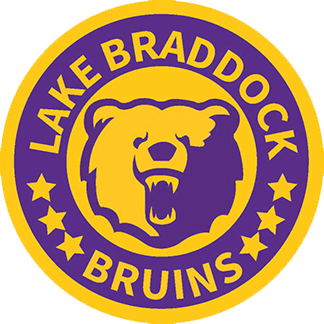High School World Languages Questions
High School World Languages Department Questions
1. HOW DO I KNOW HOW MANY YEARS OF A LANGUAGE I NEED TO TAKE?
Make sure you know the difference between how much language you need to get into college, and what you'll need to graduate! (This information is in the college's catalogue.)
Assuming you¹re at least an average language student in high school, you will probably be better off getting your language requirements completed in high school, rather than college, where the instruction goes at three times the speed! You can place out of some or all of your college language requirement based on your score on the SAT II. At Mary Washington and William and Mary, for example, you have no language requirement if you have completed 4 years in high school.
2. IS IT REALLY BETTER TO TAKE A LONGER SEQUENCE?
Admission officers of UVA, Madison and William and Mary and George Mason have confirmed that they look more favorably on a longer sequence (i.e. 4 to 5 years) of one language than shorter sequences of two languages. They recognize the significance of completing the sequence of academic disciplines such as math and foreign language.
3. HOW DO I KNOW WHAT COURSE I SHOULD TAKE NEXT YEAR?
Every year the World Languages teachers write a recommended placement for every underclassman.
The counselors will register students according to these recommendations.
4. HOW ARE STUDENTS' SKILLS ASSESSED?
FCPS has implemented a method of assessing and reporting students' written and spoken mastery of a world language. The LBSS World Languages Department has been working with the county to ensure that our testing instruments accurately assess the proficiency level of students. Throughout the year, an increasing emphasis is placed on global assessments of proficiency, rather than just knowledge of discrete vocabulary or grammar elements.
The final exam also assesses students' proficiency. For the modern spoken languages the exam consists of three parts:
Speaking Assessment - 25%
Writing Assessment - 25%
Multiple choice - 50%(Includes: culture, vocabulary, grammar, reading comprehension, and listening)
5. WHAT'S UNIQUE ABOUT LAKE BRADDOCK'S WORLD LANGUAGES PROGRAM?
- A level one language course - separate eighth grade sections are offered for GERMAN, SPANISH, FRENCH AND JAPANESE.
- AP offerings in German, French, Spanish, Latin, and Japanese.
- IFL (Introduction to Foreign Languages - for middle schoolers) includes Spanish, French, German, Japanese and Latin.
6. WHAT'S THE SEQUENCE FOR WORLD LANGUAGES?
| FRENCH | 1 -> 2 -> 3 -> 4 -> AP Language |
| SPANISH | 1 -> 2 -> 3 -> 4 -> AP Language -> AP Literature |
| JAPANESE | 1 -> 2 -> 3 -> 4 -> AP Language |
| LATIN | 1 -> 2 -> 3 -> 4 -> AP CatullusOvid or AP Vergil (offered in alternate years) |
Notes:
- Competitive colleges look for five strong academics in the senior year, and whether students have completed long sequences in math and foreign language.
- Competitive colleges look more favorably on four or five years of one language than two years of two languages.
- We DO NOT recommend "pass-fail" for language courses; colleges do not look favorably on that option.
- Almost all B.A. programs in college have a foreign language requirement. Business programs are increasingly requiring foreign language study, due to our shrinking global economy.
- Students should find out what language requirements they will need to fulfill to GRADUATE FROM COLLEGE, and how they can fulfill some or all of those requirements in high school.
- Students who plan to use three years of ASL to fulfill their language requirement are cautioned to check with colleges to which they might apply.
- Latin students may take both AP classes, creating a five-year sequence of language study.

